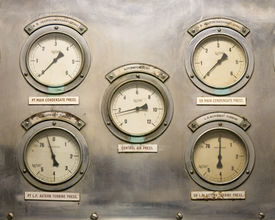Evaluation is the key point in determining your event strategy’s efficiency. Although considered to be a final step in the planning chain process, measuring the KPIs will greatly influence your actions when managing your next event.
But first things first: What is an event KPI, and why should it matter? For starters, KPI stands for key performance indicator. Don’t confuse it with event ROI, which is the acronym for return of investment. As we know, ROI defines the financial success of a particular investment. For example, this type of measurement can help you determine how profitable your event was. ROI usually answers the question of whether ticket sales covered the total amount of event expenses.
KPI, on the other hand, is a flexible measurement tool that helps you determine if you managed to achieve your goals by running an event. For example, it can help you understand if your event was successful enough to increase your brand visibility. It can also present the metrics for how many new leads you gained from the event.
To create an event KPI, you’ll have to first determine your planning goals and objectives. Why are you planning the event in the first place? What are you hoping to achieve? Next, you must define the critical success factors. Similar to smart goals, these factors refer to concrete numbers that show what results you need to consider your event a success. From there, you can define the key performance indicators.
To help you get a better idea about how you could measure the success of your event strategy, here’s a list of KPIs you could consider:
Email marketing rates
How you promote an event plays a key role in determining its further success. The way you plan your brand’s outreach marketing strategy will significantly impact the attendance rate. That’s why one of your KPIs may involve your email marketing efficiency rates.
You could evaluate the open rate, or, if the email message invites people to click on the registration form or any other link, you can check the click-through rate and see how many people actually reacted to your call to action. This will give you a clear idea about the success of your event marketing efforts.
Number of sponsor partnerships
Planning an event sometimes also involves a great deal of sponsorship and event idea pitching activities. An interesting KPI could be the number of sponsor partnerships you managed to attract for the upcoming event.
Social media engagement
Your attendees’ online activity is always an important indicator of your success, whether it’s before, during, or after the event. This KPI involves a series of different measurement indicators.
From the number of mentions and actual engagement (discussions, comments) to impressions and geo-localization, there’s an impressive amount of data you can track.
The engagement level of your VIP attendees
You should definitely track the way influencers or industry leaders behave before, during, and after the event. Their online activity or engagement during the event can influence your image.
Are they recommending the event to their audiences? Are they talking about your event? Are they sharing their thoughts about attending? These aspects are important and will greatly affect your results.
App downloads
Are you experimenting with a new event mobile app? Do you want to reduce the costs for program printing and persuade attendees to view the event agenda via an app? Do you have an actual strategy that will get people to download and use the event app?
If so, app downloads are a crucial KPI to evaluate the interaction your attendees had with the technology you provided for the event.
Total registrations
Attendance rate is another important indicator. Usually, you must have a preestablished target that will help you understand the efficiency of your marketing efforts, targeting campaign, and event’s value proposition.
Networking results
If you decide to plan a series of B2B matchmaking meetings for your attendees, you’ll be able to easily track the results. To evaluate this KPI, you must identify the number of scheduled one-on-one meetings, and also consider the absenteeism factor.
Cost per gained acquisition
Usually, this KPI works for businesses. How much did the entrepreneurs or marketing departments spent to attract a new lead or a new client?
However, this indicator can also work for events. How much did you spend to attract one attendee? Are these costs justified?
The number of new leads and customers
If you use events as a marketing tool to promote your business, brand, or products and services, you’ll want to find out how many new leads and customers you acquired. In other words, you must evaluate how many attendees decided to follow up after the event or, even better, bought your products or services.
Gross revenue
How much did you earn after running the event? Although this indicator works for measuring the ROI, you can also use it as a specific data to evaluate your financial goals.
Wrap-up
Don’t limit yourself to these KPIs only. Every event’s goals can vary. However, if there’s one thing you should remember from this article, it’s that after setting up the goals, you have to define a specific indicator that will help you understand what you’ve managed to achieve and what you maybe need to work on for your next event.




